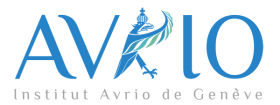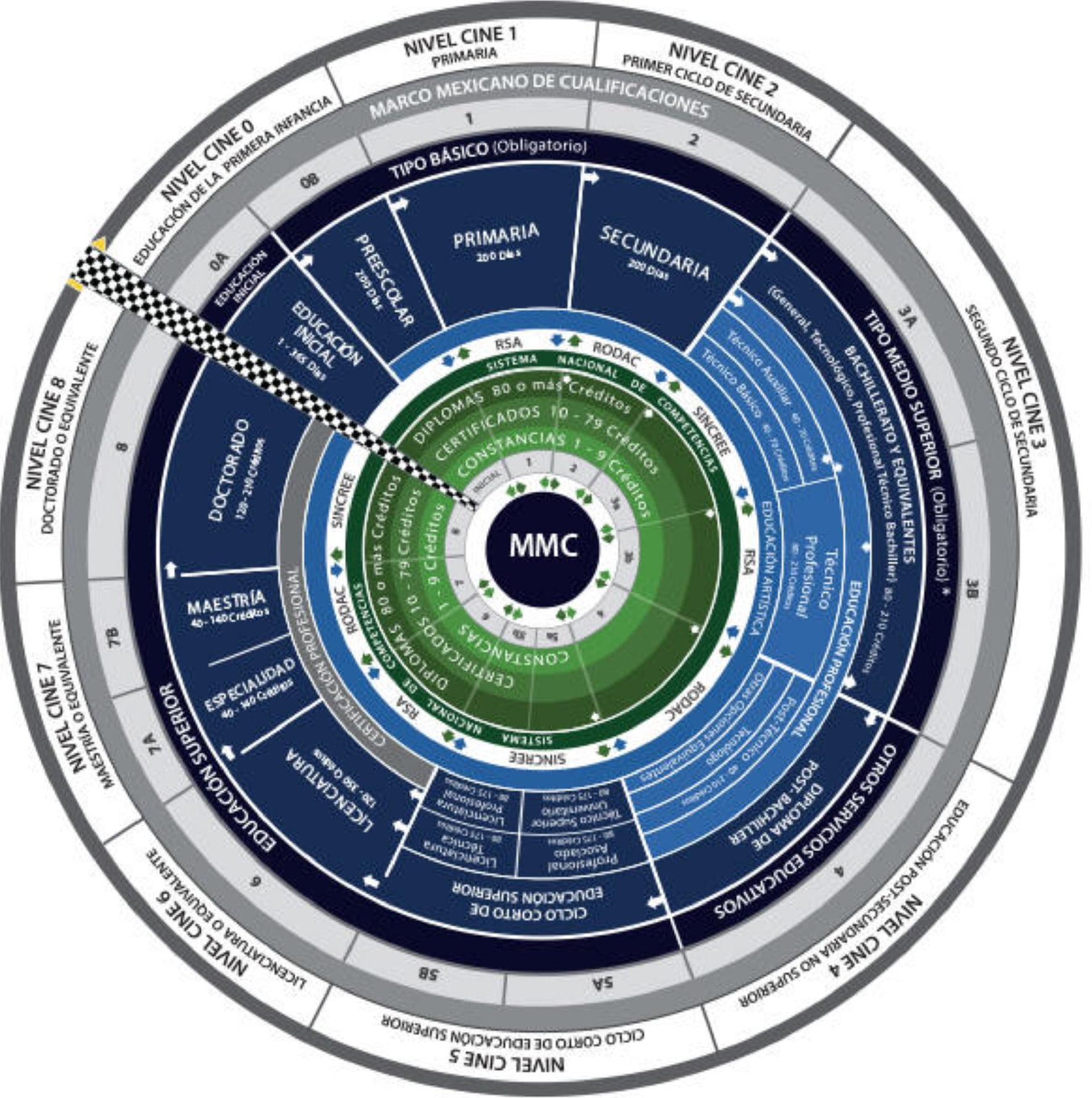Master of the University in Individual Studies
Máster Universitario en Estudios Individuales
Validation of Prior Learning
Degree requirements for the Master of Individual Studies: At least a professional qualification at level 5 or 6 of the European Qualifications Framework or an equivalent professional background of at least five years as entry requirement, plus an accepted portfolio validation of prior learning equal to 60 ECTS credits or a qualification at level 7.
At Universidad Azteca, applicants may earn up to 100% of the credits required for the Master of Individual Studies degree through Validation of Prior Learning Portfolios and other transfer of credits options.
To begin the Prior Learning Assessment Portfolio process, applicants must first consult with a member of the Admission Team, who can help applicants decide if portfolio development and submission is right for the applicant.
The applicant must submit
A complete portfolio demonstrating which skills and knowledge have been acquired by professional or individual learning and experience, including transfer credits from higher education course-work and partial studies; or
A recognition or validation report of prior learning assessment in line with national regulations applicable in the country of award, indicating the corresponding NVQ level or credits earned.
Applicants submit their complete educational and professional portfolio, demonstrating the acquired skills and knowledge, for the purpose of evaluation.
An evaluation report by an independent Professional, Statutory, Regulatory or Supporting Body or a credential evaluator service will support the application. We consult students on such independent evaluation of prior learning service providers.
Universidad Azteca conducts an evaluation and issues a ruling on admission or rejection, or admission on conditions to successfully complete certain coursework.
Candidates who are admitted will be invited to a diagnostic online-examination of the degree requirements.
These ad eundem degrees are earned degrees, not honorary, because they recognise formal and professional learning and qualification.
The CHEA glossary of key terms defines:
Accreditation of Prior Learning: (U.K.) A process by which individuals can claim and gain credit toward qualifications based on their prior learning and sometimes experience (often called experiential learning). Credit to be given where there is evidence that the experience or learning has resulted in the student achieving the appropriate and clearly expressed learning outcomes.
Recognition of prior learning (RPL), prior learning assessment (PLA), or prior learning assessment and recognition (PLAR), describes a process used by colleges and universities around the world to evaluate learning acquired outside the classroom for the purpose of assigning academic credit. Common ways individuals have acquired college-level learning include: corporate or military training; work experience; civic activity; and independent study.
The legal framework in Mexico for recognition of non traditional individual prior learning is regulated by the ACUERDO NÚMERO 286, implementing the UNESCO Recommendations for Validation and Recognition of Prior Learning.
Universidad Azteca offers a number of assessment options that might be appropriate for students who have acquired college-level learning from prior study or experience. Universidad Azteca applies the university own standards, combining the following guidelines and frameworks: ACUERDO NÚMERO 286, the French VAE: Validation des Acquis de l’Expérience, and the Irish HETAC Standards for PLA, and the US CAEL standards. Ireland and France are countries allowing for the recognition of prior learning at all three academic levels including EQF level 8.
This process assesses learning as interdisciplinary that corresponds to the content of courses taught at university; learning which can be documented by certificates, letters of recommendation, CEU (Continuing Education Unit) transcripts, it assesses learning that corresponds to course coursework from any accredited college or university or recognised learning programme, which can be documented.
The first stage in the assessment process is the determination of whether the learning has already been evaluated as part of an assessment of prior learning programme. If it is determined that credit has already been so evaluated, applicable credit is awarded based on the prior evaluations of the corresponding evaluators and no individual assessment is conducted. Universidad Azteca accepts any official validation of prior learning conducted in accordance with the laws of the country where the validation was issued, particularly the European Validation Framework, Canadian, Australian, US (California Prior Learning Assessment & Recognition (PLAR) Manual; Excelsior College Flexible Assessment; Thomas Edison State College Assessment of Prior Learning Handbook; Empire State College Credit by Evaluation; Ohio State University Portfolio Assessment; Charter Oak State College Portfolio Assessment), and similar standards based on CAEL recommendations are accepted.
The second stage in the assessment process is the determination of whether the learning claimed by the student can be evaluated by a combination of any of the university own degrees for which Universidad Azetca awards credit.
Documenting University-Level Learning for Credit
A Prior Learning Assessment Portfolio is a collection of résumé, narrative essay, and supporting evidence which documents how prior job, volunteer, service, corporate training, or other relevant experience aligns to the learning objectives of specific academic courses or programmes. Reviewed by trained faculty member assessors and/or subject matter experts, these portfolios provide an accepted basis for awarding credit for prior university-level learning gained outside the traditional classroom—reducing the time and costs to complete a degree.
Earn credit through Portfolio Assessment
Portfolio assessment helps students define and demonstrate both their formal and informal learning in terms of college courses.
Portfolio Assessment is a flexible, efficient way of earning college credits for what you have learned outside the classroom. Universidad Azteca has already helped applicants in earning credits based on their knowledge. Moreover, these credit awards are honored by our partner universities.
Like all programmes offered by Universidad Azteca, Portfolio Assessment operates on the belief that college-level learning, no matter how it is gained, warrants credit. Therefore, nearly any area of learning can be converted into college credits as long as it is taught at a recognised or accredited college or university and you can prove your expertise in it.
A portfolio is a compilation of data assembled in an approved format to demonstrate college-level knowledge for an award of credit. Often compiled like a notebook, each portfolio generally represents one course. The portfolio you submit to Universidad Azteca will serve as proof of your expertise and the value it has in the academic world. It can include knowledge or skills gained from a wide variety of sources, but these are some of the more common ones used for Portfolio Assessment:
- Full or part-time jobs
- independent reading and study
- training programmes or in-service courses
- volunteer work
- cultural and artistic pursuits
- hobbies and recreational pastimes
- community or religious activities
- military service
- travel study
- organization memberships
Putting your portfolio together is a simple, step-by-step process:
- Take inventory of your knowledge and skills.
- Choose the areas for which you want to seek college credit.
- Find course descriptions to match your learning.
- Provide evidence of your knowledge.
- Describe what you know and how you learned it.
- Put it all together.
- Submit the portfolio.
The Assessment of Your Portfolio
Each portfolio is assessed by a faculty consultant who has expertise in that particular subject. The faculty consultant will determine whether or not your knowledge of the subject is equal to a college-level grade of “pass” or better. If so, then he/she will recommend that you receive credit. You will not receive a letter grade. If your knowledge is judged to be insufficient, the faculty consultant will recommend that credit be denied. If the faculty consultant decides that more information is needed in order to make a determination, you may be asked to submit additional evidence, take an examination or be interviewed. The latter practices are often used in cases where students have acquired knowledge of a subject that cannot be documented.
There is no limit to the number of credits you may earn through portfolio assessment.
It is possible that students earn enough portfolio credits to meet their degree requirements.
Legal basis, fields of study and scope of studies
Type: University course according to Art. 59 Ley General de Educación, Mexico.
State Recognition (RVOE) of the Universidad Azteca in Mexico by the General Directorate for Higher and University Education of the Ministry of Public Education (SEP) for studies in the fields of study Humanidades (Educación, Pedagogía), Ciencias Administrativas y Sociales, Ciencias de Salud y Psicología, Derecho , Informatíca, Arquitectura et.al. is available.
Universidad Azteca offers courses at all three levels (Licenciatura, Maestría, Doctorado), with RVOE and university-owned. The Universidad Azteca is entitled to award doctorates.
Scope: 90 ECTS credits. In Mexico, after the Licenciatura (at least 240 ECTS), a minimum of 60 ECTS (75 créditos SACA) is required for the Master’s.
Type and target group
Implementing and awarding university: Universidad Azteca, Chalco, Mexico.
University department in Austria: Universidad Azteca European Programs.
Target group: Master’s students who transfer their academic achievements to the Universidad Azteca and complete the master’s program with exams or a thesis.
Focus: application-specific.
Fields of study: Interdisciplinary from at least two fields of
- Social and Economic Sciences
- Health Sciences
- Educational Sciences
- Psychology
- Environmental Sciences
- Industrial Engineering
- Health and Nursing Sciences
- Computer science
- Environmental Technology.
Study languages: German, English, Spanish
Admission: Diploma course, which entitles to postgraduate studies and ECTS credit points from postgraduate studies and comparable professional training and further education (EQF and national qualification levels) e.g. at research institutes.
Modality and direction
Modality: Distance learning with face-to-face events and exams in Austria.
In the modality of “blended learning” with face-to-face events, courses with an examination character are held.
Scientific director: Prof. Dr. Gerhard Berchtold, Prof. Dr. Friedrich Luhan, Prof. Dr. Ricardo Saavedra Hidalgo, Prof. Dr. Felipe Fernández Rivadulla, Prof. Dr. Endler.
Study Plan
| Transfer credits – Free electives | Test mode | ECTS |
| Transfer from a master’s degree / EQF level 7 | Credits Transfer | Up to 60 |
| Optional subjects from a master’s degree at the Universidad Azteca | Exam | Difference to 60 |
| Scholar module compulsory subject | Test mode | ECTS |
| Research project | Presentation | 12 |
| Thesis / research project / examination / Final thesis | Test mode | ECTS |
| Written work in the specialization area | Written work, presentation, and examination | 18 |
| Master’s requirements | Test mode | ECTS |
| total ECTS | Defence / Master’s examination | 90 |
Qualification level: Level 7 of the Mexican Qualifications Framework MMC


